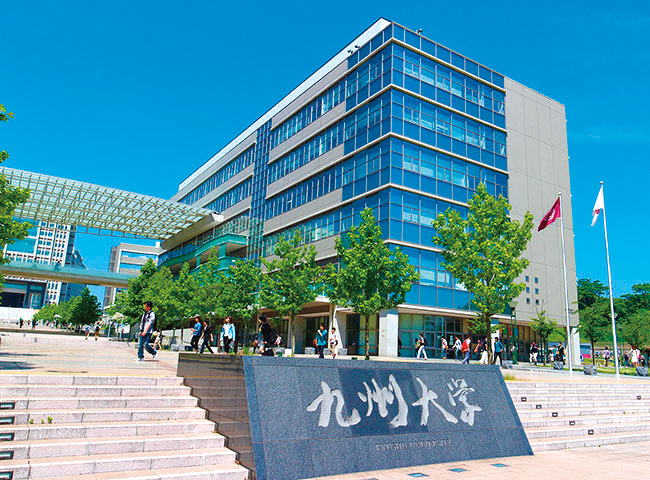Kyoto University Graduate School of Integrated Arts and Sciences is a place of research and education where elites who can change the world are nurtured.
Mr. Keely Alexander Ryuta, who graduated from the first batch of students in 2018, has been researching energy technology finance and sustainability evaluation at the Faculty of Engineering, Kyushu University. It is making efforts to popularize small hydroelectric power generation. Visualize comprehensive ESG (Environmental, Social & Governance) impact assessment of products and services for global supply chains by 2016 using proprietary AI. He also founded a university startup that provides services.We asked Mr. Keely about his research, its results, the difficulty of implementing it in society, his motivation, and his future prospects, as well as his memories of university and graduate school.At the same time, we have a message for everyone who aims to become a researcher in the future or who is thinking of starting a business based on the results of their research.
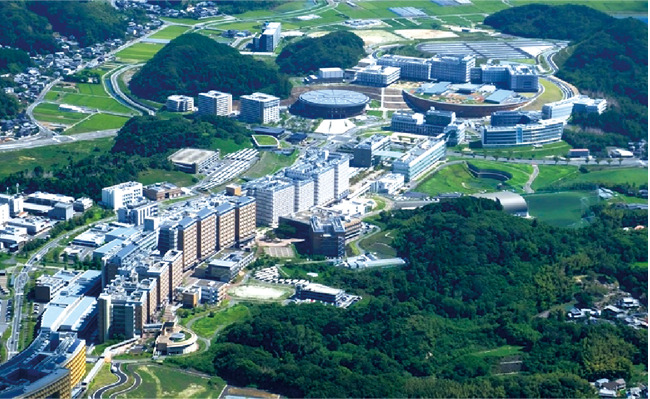
Operating a small hydroelectric power plant in my beloved hometown of Itoshima
A multifaceted and interdisciplinary empirical approach that approaches from urban engineering and economics to solve various problems facing cities around the world, such as depletion of energy resources, environmental pollution, population decline, and large-scale disasters. doing research.Specifically, for the sustainable development of society, we will focus on the social, environmental, and economic impacts of renewable energy technologies such as renewable energy, hydrogen, and COXNUMX capture and conversion (DAC-U) systems, and the social, environmental, and economic impacts of population decline.・We are evaluating the impact on the economy.Recently, we have also started working on the analysis of various elements essential to ESG investment.
On the other hand, I am also focusing on popularizing small hydroelectric power generation because I want to give back to society the knowledge I have accumulated through research on renewable energy that I have continued since my graduate school days.Small-scale hydroelectric power generation is, as the name suggests, small-scale hydroelectric power generation that uses various water flows, such as irrigation canals, small rivers, roadside ditches, and water lines*.It does not require large-scale civil engineering structures such as dams, and is characterized by the fact that it can generate electricity even with a small stream of water with relatively simple construction, and has great potential among various types of natural energy.The development process roughly consists of four steps: (4) feasibility study, (5) survey/basic design, (6) detailed design/start of construction, and (XNUMX) start of operation.It is said that it will take five to six years from the feasibility study to the start of operation.Since it uses the potential energy of the head to generate electricity, it is very important to find the optimum installation location.
In addition, since hundreds of meters of drainage pipes are required, the cooperation of the local government is essential.In the case of crossing multiple administrative jurisdictions, conflicts of opinion between them take time, but in many cases the situation does not progress easily, and large companies are not very interested in doing so.However, in addition to the great potential, I also had a strong desire to contribute to the local community, so I decided to take the lead in starting small hydroelectric power generation.
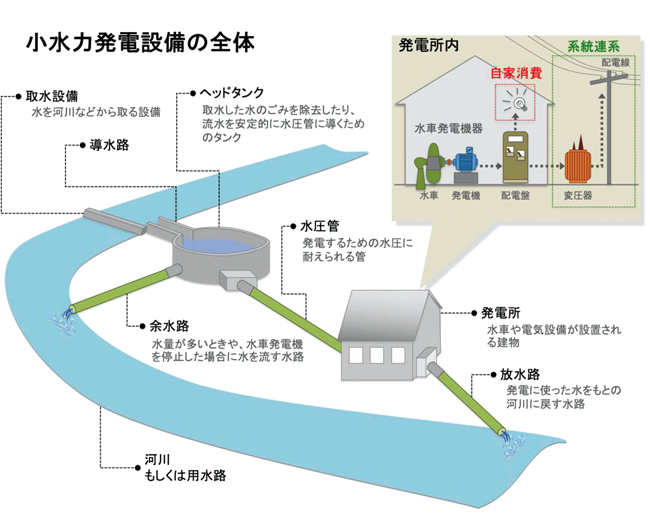
In 2016, Itoshima Small Hydro Power Co., Ltd. was founded, and in February 2020, a small hydro power plant using rivers and irrigation channels with a basin area of about 2 km5, an intake level of 130 m, and a discharge level of about 65 m started operation.It's running smoothly now, but it's been a series of difficulties to get to this point.When trying to exchange opinions with investors, the town hall (administration), local residents and landowners at the same time and try to build a consensus, negotiations often run into difficulties, and I sometimes feel frustration and frustration. .
But now, this experience has become a big source of me.In terms of giving back to the local community, we are making a small contribution, such as returning the profits generated from power generation to the community and generating economic effects by passing on the development and operation of the power plant to local private companies as much as possible. I don't think so.
Triggered by studying at graduate school and meeting people
The Kyoto University Graduate School of Integrated Arts and Sciences, which I attended, is a unique place where you can acquire practical skills while deepening your specialized field for cultivating research capabilities to tackle global issues from a cross-disciplinary and bird's-eye view. It has a distinctive curriculum.A program called "Overseas Warrior Training" in the 4th year and "ProjectBased Research (PBR)" in the 5th year greatly supported the establishment of the small hydroelectric power plant.
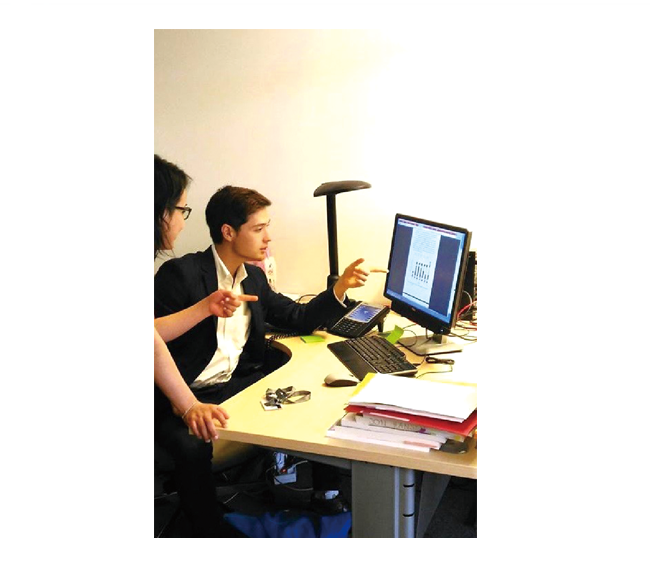
At the International Energy Agency (IEA) in 2017
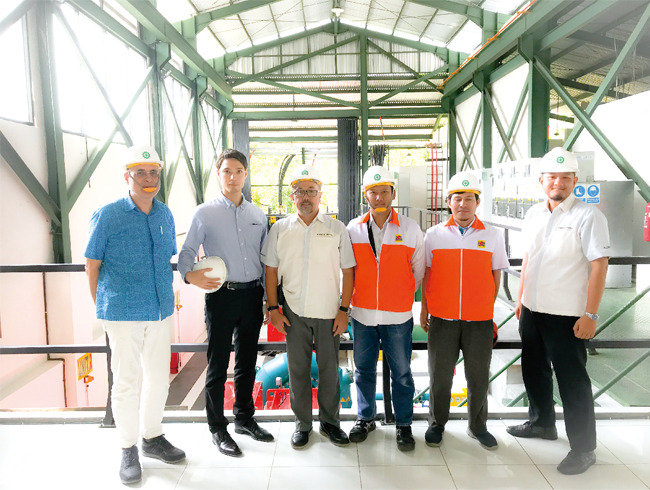
At a small hydroelectric power plant in Indonesia in 2018
Overseas musha training is an international practice activity to acquire knowledge and experience that can be used in the field by going abroad and solving social issues there.Interested in research on renewable energy and the global energy situation and development, I spent half a year at Kyoto University at the French headquarters of the International Energy Agency (IEA) and the Fiji country office of the United Nations Development Program (UNDP). I had the opportunity to work as a researcher. The analysis of investment in energy technology conducted at the IEA was published in the flagship report "Renewable Energy Mid-Market Report", and I felt a great sense of accomplishment.At the same time as learning the difference between writing academic papers and writing documents for the purpose of policy making, I was also able to notice the huge gap between research and the real world.
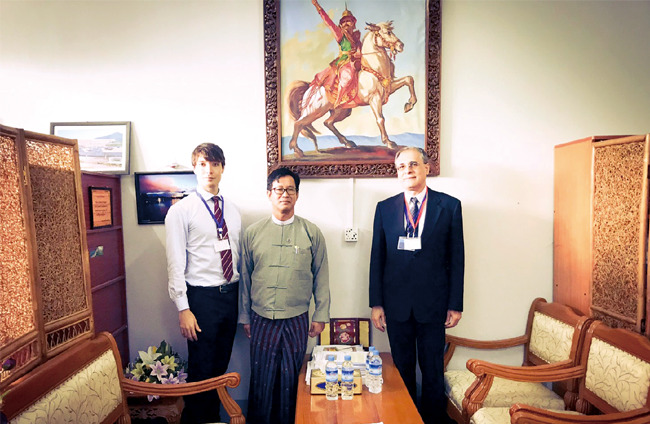
At the Ministry of Energy and Power of Myanmar in 2019
As a culmination of research and practical education, in the fifth year, the final year of the program, students themselves plan a project for social implementation of their research, and carry out PBR involving people from other institutions.With the desire to bridge the gap between research and practice and serve as a bridge to society, I set the founding of Itoshima Small Hydro Power Co., Ltd. as the theme of PBR, and put in place a system that would enable direct feedback of academic knowledge to the real world. is.When I registered in 2016, I was still working in France, so it is an unforgettable memory that I stamped the official document with my thumb and submitted it to the Japanese Embassy in France.Among the renewable energies, we chose small hydroelectric power generation because although it has great potential, its development was delayed. This is because environmental problems caused by photovoltaic power generation have been reported one after another.
Kyoto University Graduate School of Advanced Studies in Human Survivability (Shishukan), a place for research and education where elites who can change the world are nurtured
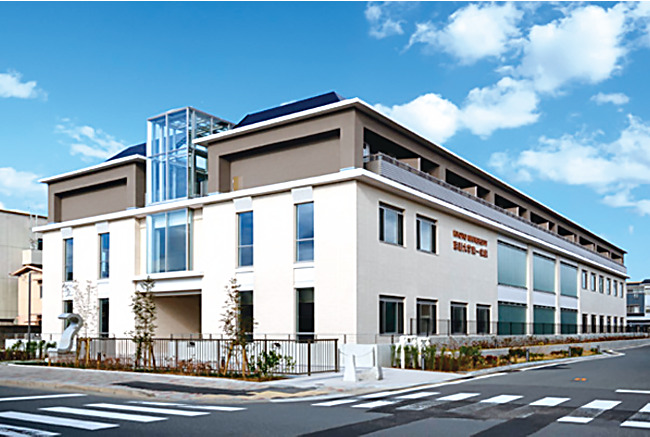
The Kyoto University Graduate School of Integrated Survival Studies is a 2013-year integrated doctoral program in which students can study Integrated Survival Studies.Integrated Survival Studies is a comprehensive study that seeks to solve social issues through an approach that integrates the humanities and sciences, with the survival of human beings and the global community at its core.It is also a new academic field that teachers and students create together.
The Institute for Integrated Survival aims to develop Ph.D. human resources who can find solutions to global issues such as environmental problems, population growth, and pandemics, with a broad perspective, logical thinking, and strong willpower. This is the production of.From the early stages of graduate school, through subjects such as "deliberation" and "service learning," students draw a future image of their own role in society and contribute to society, and learn the knowledge and methodologies necessary for that purpose.In addition, by systematically promoting interdisciplinary research from the first year onwards, students can warm up the concept of their doctoral dissertation from an early stage, and spend part of their time on "Overseas warrior training" and PBR to experience the social implementation of research results. can be filled.Full-time faculty members provide tailor-made course guidance, and students from different cultures and fields live together for five years in a "training camp-type training facility".Details are on the school website. (https://www.gsais.kyoto-u.ac.jp/)
Kyoto University Graduate Schools (List of Graduate Schools)
https://univ-journal.jp/daigakuin/48637/
Established the second aiESG Co., Ltd. as a university-originated startup
In 2022, we founded aiESG Co., Ltd. together with Dr. Shunsuke Managi, who is a senior professor at Kyushu University, director of the United Nations New Wealth Report, and co-author of the IPCC. This is a (aiESG) business that analyzes ESG impacts with proprietary AI.Currently, half of the investments made worldwide are said to be ESG investments, and it can be said that being a company that considers the environment, society, and corporate governance is a prerequisite for receiving investment. In order to formulate a management strategy that considers ESG, it is essential to have indicators of the ESG impact of the company as a whole, as well as of products and services.
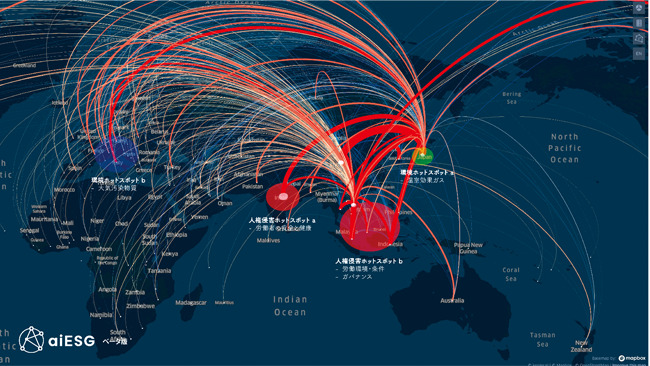
However, while ESG indicators have been actively developed at the corporate level to date, ESG evaluation of the products and services that support social life has not progressed sufficiently. Development was required.
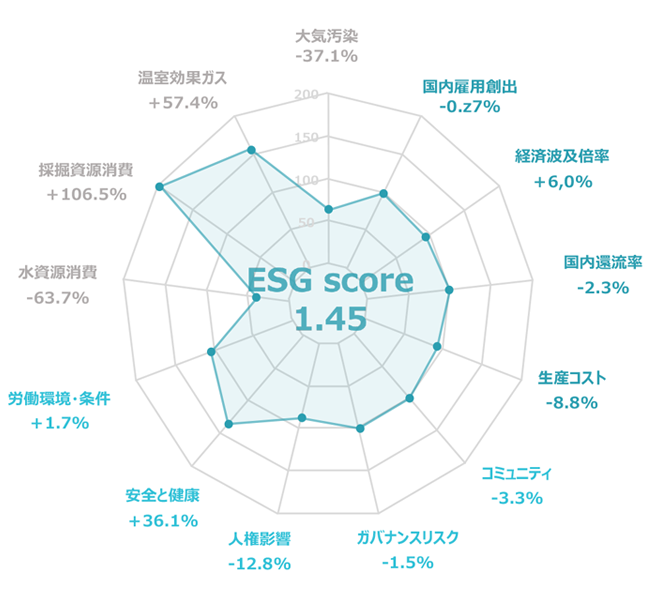
Until now, ESG evaluations of products and services have mostly been limited to air pollution and COXNUMX emissions evaluations, which are limited environmental impact evaluations.Therefore, in addition to air pollution and COXNUMX emissions, in addition to other important environmental impacts such as water resource consumption and mining resource consumption, working environment and conditions, safety and health, human rights impacts, governance risks, production costs and Build a multifaceted and comprehensive evaluation method that traces back the supply chain and evaluates the impact on society, such as the creation of domestic jobs.
We have developed a system that assigns four types of ESG labels, Certified, Silver, Gold, and Platinum, according to the ESG quality from the results of analysis by aiESG.If this spreads, it will be possible to evaluate the main products and services of companies from multiple perspectives and comprehensively beyond the indicators of the entire organization, and furthermore, it will be possible to create a flow of technology development that takes ESG into consideration from the technology development stage. thinking about.In the development, we will ask for cooperation from internationally renowned researchers and staff of international organizations, and in the future we aim to make it the de facto standard* from Japan. Under the slogan of "looking beyond numbers to people's well-being", we use an interdisciplinary approach to quantify the complex issues facing modern society, including those in the field of ESG investment. I would like to make policy recommendations.
Looking at his father's back, he set out on the path of research
Born to an American father and a Japanese mother, he spent his childhood in Michigan, USA.Before she entered elementary school, she came to Japan with her father, who was assigned to Kyushu Sangyo University.Living in Itoshima City, which is relatively close to my father's workplace, was very enjoyable, and I chose a local public elementary school.After that, I spent six years at a local junior high school and high school, and entered Kyushu University as a 6th class student of the 21st Century Program.I actively studied a wide range of academic subjects in addition to my field of specialization, environmental economics.In my second year at university, I wanted to study in my hometown of Michigan, so I used the exchange program to study at the University of Michigan and complete the Global Scholars Program.Living with other students in one big dormitory, I think I was able to train myself to accept the diversity of fellow students with different specialties, races, and ways of thinking.
Since my childhood, my father has been very important to me, and after entering university, it was very natural for me to aim to become a university teacher. “Like my father, I want to do what I love and work hard, while enjoying my hobbies such as surfing on my days off and enriching my private life.” As a senior researcher, I have great respect for the way he speaks more than 20 languages without difficulty and thoroughly researches cross-cultural management.When I went to graduate school, I was thinking of going to the United States, but when I was in my fourth year, I changed my course when I heard about the Kyoto University Graduate School of Advanced Studies in Human Survivability.
To all aspiring researchers
Even if you are in a pinch, have a heart and time to not miss an opportunity
It is very important to focus on solving the difficulties, problems, and issues in front of you, and to try your best to solve them.But if you do too much, you may miss the opportunity that comes unexpectedly. It's like "not seeing the forest for the trees".During the three years from 2018 to 2020, when I was wearing three pairs of straw sandals: a university professor, a representative of a hydroelectric power company, and a specialist in an international organization, I literally worked like a workhorse. I was so busy resolving the difficulties in front of me that I often didn't notice the opportunities that came my way.If one thing doesn't go well, it will affect the whole, and you won't have time to spare, and you won't be able to think deeply or dig deep into your research.I tried to break out of this situation somehow
However, he changed his mind, saying, "I have three jobs, so it's only natural that each one has ups and downs. In that case, I should wait for the timing when I can solve the problems that are occurring, and in the meantime, I can improve other things." I came to think that each job should not be viewed as an independent entity, but rather as a component of one big pie, and the whole pie should grow little by little.When faced with problems or challenges, it is a good idea to talk to your colleagues.But even more than that, I think it is very important to keep your mind and time free so that you don't miss an opportunity.
In addition to changing my mindset, the multitasking skills I acquired while wearing three pairs of straw sandals also helped me break through the situation at the time.Multitasking skills are the ability to manage multiple duties simultaneously, focusing on one task while keeping track of others.In my case, while wearing three pairs of straw sandals, I switch between multiple tasks and perform each one quickly.
I was able to acquire the strength to carry on.There were times when I was so busy with meetings all day that I almost lost my concentration, but I was able to overcome it by trying to maintain my concentration as much as possible and being aware of how I could create a state of flow for a long time. I made it.
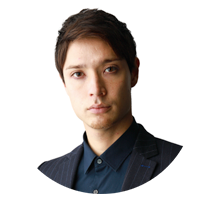
Faculty of Engineering, Kyushu University, Associate Professor
Keeley Alexander Ryuta
Graduated from Kyushu University 2013st Century Program in 21. After working at the International Energy Agency (IEA) and the United Nations Development Program (UNDP) in 2017, and as a specially appointed researcher at Kyoto University, in 2018 he completed the first year of the Graduate School of Advanced Studies in Human Survivability, Kyoto University, and obtained a Ph.D.During that time, he founded Itoshima Small Hydro Power Co., Ltd. and became its representative director.Since 2018, after completing graduate school, he has concurrently served as a specially appointed assistant professor at the Kyushu University Faculty of Engineering and a research specialist at the World Bank Tokyo Disaster Prevention Hub. In 2020, he became an assistant professor at the same research institute, and has been in his current position since 2023.His hobby is surfing.He graduated from Seinan Gakuin High School.
